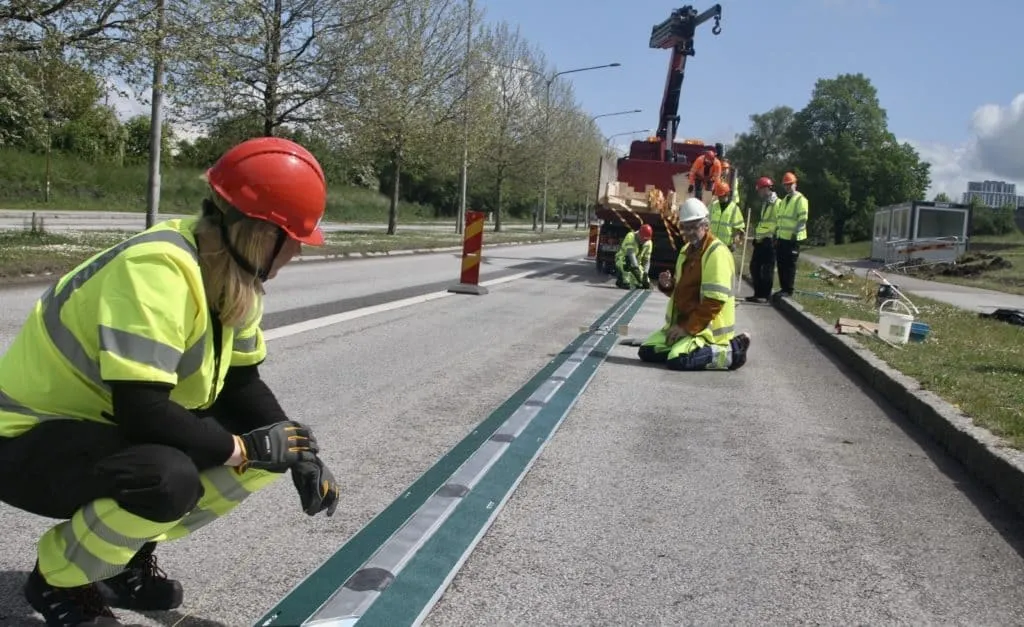The UK’s Transport Research Laboratory (TRL)’s chief executive Rob Wallis, attending the United Nations Climate Summit in New York last week, was delighted to be able to pledge TRL’s support to the UEMI initiative, by UN-Habitat.
“The UEMI initiative, aimed at substantially increasing the adoption of electric vehicles within urban environments, aligns strongly with TRL’s own strategy and current activities,” Wallis explained. “TRL is actively engaged in leading innovative research programmes to understan
October 2, 2014
Read time: 2 mins
The UK’s Transport Research Laboratory (491 TRL)’s chief executive Rob Wallis, attending the United Nations Climate Summit in New York last week, was delighted to be able to pledge TRL’s support to the UEMI initiative, by UN-Habitat.
“The UEMI initiative, aimed at substantially increasing the adoption of electric vehicles within urban environments, aligns strongly with TRL’s own strategy and current activities,” Wallis explained. “TRL is actively engaged in leading innovative research programmes to understand the implications and opportunities presented by new low-carbon technologies, and is today working on a number of Europe-wide projects seeking the widespread introduction of electrified bus systems across Europe, together with emerging wireless charging solutions for electric vehicles, and a number of similar electric vehicle projects in its home market of the UK.”
He added that “The UEMI initiative is a crucial enabler for addressing the impact of growing and populous urban cities around the world, with the congestion and carbon implications they bring. TRL is focusing its efforts to enable ‘smart traffic solutions for smart cities’.”
Four global transport initiatives announced at the summit aim to put the transport sector on track toward a low-carbon future and save trillions of dollars in fuel costs in the process.
These and other initiatives are intended to reduce greenhouse gas emissions through a host of measures, from increasing the number of new bus and metro lines to increasing the number of electric vehicles and introducing car- and bike-sharing.
The International Union of Railways launched the Low-Carbon Sustainable Rail Transport Challenge to promote the use of rails for freight and transport, saying it anticipated a 75 per cent reduction of carbon dioxide emissions from rail transport by 2050.
Another initiative, the3833 International Association of Public Transport Declaration on Climate Leadership, brought pledges, commitments and actions for more than 110 public transport undertakings in everything from buses to cable cars, while the International Civil Aviation Organisation promised to step up the commitment to reach the industry’s long-term global goal of halving net CO2 emissions by 2050 compared to 2005 levels.
“The UEMI initiative, aimed at substantially increasing the adoption of electric vehicles within urban environments, aligns strongly with TRL’s own strategy and current activities,” Wallis explained. “TRL is actively engaged in leading innovative research programmes to understand the implications and opportunities presented by new low-carbon technologies, and is today working on a number of Europe-wide projects seeking the widespread introduction of electrified bus systems across Europe, together with emerging wireless charging solutions for electric vehicles, and a number of similar electric vehicle projects in its home market of the UK.”
He added that “The UEMI initiative is a crucial enabler for addressing the impact of growing and populous urban cities around the world, with the congestion and carbon implications they bring. TRL is focusing its efforts to enable ‘smart traffic solutions for smart cities’.”
Four global transport initiatives announced at the summit aim to put the transport sector on track toward a low-carbon future and save trillions of dollars in fuel costs in the process.
These and other initiatives are intended to reduce greenhouse gas emissions through a host of measures, from increasing the number of new bus and metro lines to increasing the number of electric vehicles and introducing car- and bike-sharing.
The International Union of Railways launched the Low-Carbon Sustainable Rail Transport Challenge to promote the use of rails for freight and transport, saying it anticipated a 75 per cent reduction of carbon dioxide emissions from rail transport by 2050.
Another initiative, the








